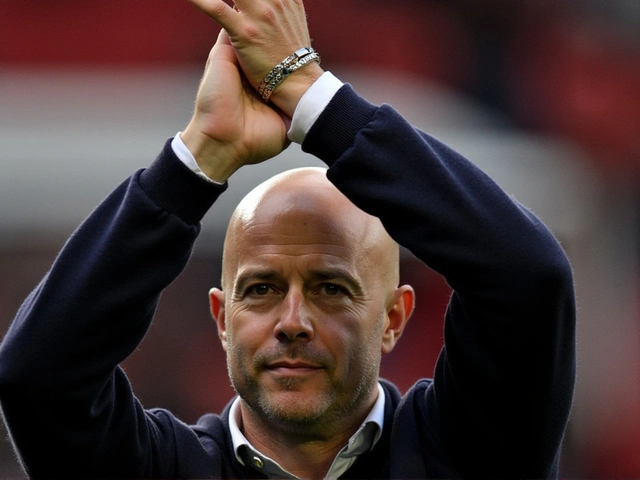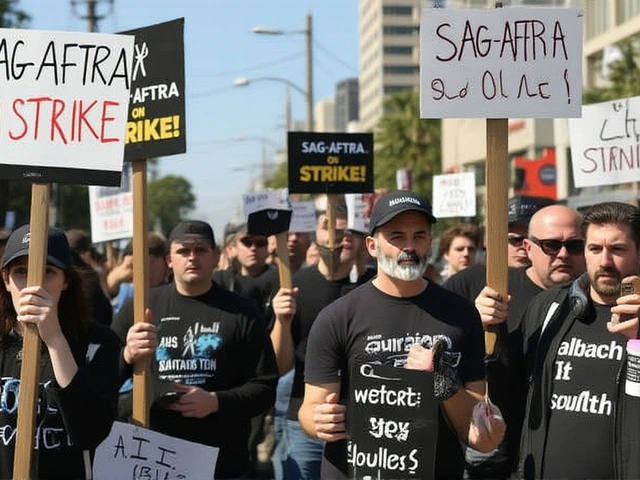Outrage Over Boeing's Plea Deal
The brother of Graziella de Luis Ponce, one of the victims of the Ethiopian Airlines 737 Max 8 crash, has spoken out against the plea agreement struck between Boeing and the Department of Justice (DOJ). Javier de Luis, an aerospace engineer, has expressed profound discontent with what he perceives as a lenient deal that does not sufficiently penalize Boeing for its failures. De Luis, who also holds a position on the Federal Aviation Expert Review Panel, argues the current terms do not ensure against future tragedies.
Javier de Luis's criticism centers on Boeing's admission of guilt to a criminal fraud charge. The charge relates to the aerospace giant deceiving the Federal Aviation Administration (FAA) about the Maneuvering Characteristics Augmentation System (MCAS) software. This problematic software feature was a significant factor in the two fatal crashes, including the one involving Ethiopian Airlines. In de Luis's view, the settlement is inadequate and does not impose sufficient oversight on Boeing's safety practices.
Need for Greater Oversight
De Luis isn't alone in his condemnation. He represents numerous voices calling for what they believe to be necessary reforms within Boeing and the aviation industry at large. Safety practices within Boeing have been called into question, with particular scrutiny over the company's internal checks and balances. De Luis emphasized the importance of external oversight to ensure safety measures are adhered to rigorously, preventing the recurrence of such catastrophic failures.
Legal representatives for the victims' families have dubbed the arrangement a ‘sweetheart deal,' expressing dissatisfaction due to Boeing's active role in selecting the monitoring body without judicial supervision. These actions, in their view, obstruct transparency and accountability, raising concerns about Boeing's commitment to safety reform. The advocates argue for a more inclusive selection process to ensure that the appointed monitor can adequately enforce aviation safety regulations and hold Boeing accountable.

The Tragedy of Boeing 737 Max
The Ethiopian Airlines 737 Max 8 crash was one of the two fatal incidents linked to the MCAS software. The crash resulted in the loss of 157 lives, including Graziella de Luis Ponce. This catastrophe followed an earlier crash of a Lion Air flight, which also resulted in numerous fatalities. The incidents collectively raised significant questions about the safety practices and regulatory compliance of Boeing. Since the crashes, widespread scrutiny and numerous investigations have unveiled critical flaws within Boeing’s safety assessment processes and internal communications regarding the MCAS system.
These findings have put pressure on regulatory bodies like the FAA to tighten oversight and reassess their certification processes for aviation technologies. Critics argue that Boeing's actions, which led to these tragic outcomes, were avoidable had the company been more forthcoming about the MCAS issues. There is widespread belief that only rigorous, transparent oversight can restore public trust in Boeing and the aviation industry at large.
Calls for Rigorous Monitoring and Reform
The plea deal stipulates Boeing plead guilty to fraud charges; however, critics like de Luis believe this concession falls short of providing justice for the victims' families. The core of their contention is the lack of a rigorous, independent monitoring system that can ensure Boeing adheres to its pledges for safety improvements. Without such mechanisms, they argue, the risk of future failures remains inadequately mitigated.
The push for a more stringent framework includes demands for Boeing to undergo continuous, independent safety audits and for an autonomous body to oversee these processes. Such measures, they argue, would foster a culture of accountability, ensuring that Boeing's internal safety protocols are up to the mark. Moreover, they contend that the families of victims should have a say in selecting the monitoring body to ensure no conflicts of interest compromise the integrity of the oversight process.

The Legal Battle and Beyond
Legal representatives for the victims are urging for legislative and policy changes that mandate stricter regulatory oversight for aviation companies. This advocacy extends beyond Boeing to include the FAA and other governing bodies responsible for airline safety. They argue that such regulatory reforms are pivotal in preventing future tragedies and ensuring that the aviation industry prioritizes passenger safety over corporate interests.
As the legal battles continue, the families of victims remain steadfast in their quest for justice. They hope that by holding Boeing to account and pushing for comprehensive regulatory reforms, they can honor the memory of those lost while making air travel safer for future generations. The issue at hand is not merely about punishing Boeing but ensuring such grave oversights never happen again.
Conclusion
Javier de Luis and other critics view the DOJ's plea deal with Boeing as fundamentally flawed, failing to impose stringent enough consequences or adequate external oversight. They urge for more rigorous monitoring of Boeing's safety practices to prevent future tragedies. This issue underscores the need for broader regulatory reforms within the aviation industry to ensure passenger safety remains paramount.






This is ridiculous. One plea deal and they walk free?
Oh wow, Boeing gets to pick their own babysitter. Brilliant. Next they’ll be choosing the funeral director too. 🤡
this isnt even about boeing... the faa is in on it. theyve been selling out safety since 9/11 for "national security". you think they let a company like this get away with this without someone higher up pulling strings? i saw the emails. they knew. they all knew. #conspiracy
I can’t breathe thinking about this. 157 souls. 157 families. And we’re talking about a fine like it’s a parking ticket. This isn’t justice. This is a crime against humanity. My heart is shattered. 🥺
Honestly the whole mcas thing was overblown. ppl just didnt know how to fly the plane anymore. boeing made a good product, the faa just got lazy. this deal is fine. you want punishment? fine. but dont pretend its about safety when its really about cancel culture
I get why people are angry. But maybe we should also look at how the certification process got so broken. Was it just Boeing? Or did regulators stop asking hard questions? We need systemic change, not just scapegoating.
A criminal fraud charge? That’s it? I’m sure the CFO’s bonus was unaffected. This is the definition of corporate impunity.
They call it a deal but it’s really a reward. Like giving a kid candy after he set the house on fire. 🤦♀️
WHY IS NO ONE TALKING ABOUT THE BOARD MEMBERS WHO GOT MILLIONS BEFORE THE CRASHES?! THEY KNEW. THEY KNEW. THEY SOLD THEIR STOCK AND LET PEOPLE DIE. THIS IS MURDER. I’M CRYING RIGHT NOW.
The tragedy isn’t the crash. It’s the quiet normalization of death as a cost of doing business. We mourn the dead, but we keep flying. We keep buying. We keep pretending. That’s the real horror.
We need to stop treating corporations like people. They don’t have souls. They don’t feel guilt. Only humans do. So punish the humans. Fire them. Jail them. Make them pay with their freedom, not their stock price.
Wait wait wait - what if the MCAS was actually a feature? Like… a secret military upgrade? 🤔 I heard they were testing drone tech in the Max. Maybe the crashes were… intentional? Just saying.
I’m so angry I could scream. 😭 These families lost everything and the company gets to keep its logo. I’m donating to the victims’ fund today. If you’re reading this, do the same. We can’t let them forget.
I… I just want to say that I’m here. I’m listening. I don’t know what to do, but I’m not looking away. I’m holding space for the families. I’m holding space for the truth.
Oh please. You think this is bad? Wait till you find out how many other planes have hidden software bugs. Boeing’s just the one that got caught. The FAA’s been greenlighting death machines for decades. This isn’t a scandal - it’s the business model.
The real fix is transparency. Every safety audit, every software update, every internal email - public. Let engineers and families review it. No more black boxes. If Boeing wants trust, they have to give up control.
I lost someone in one of those crashes. I don’t want money. I don’t want a fine. I just want someone to say, 'We’re sorry. We failed you.' And then actually change.
This is why we need public interest oversight. Not corporate handpicked monitors. Not FAA rubber stamps. Real people. Real accountability. The sky shouldn’t be a profit margin.
They’ll forget. They always forget. The headlines fade. The lawsuits settle. The families are left with silence. And the plane? It flies again.